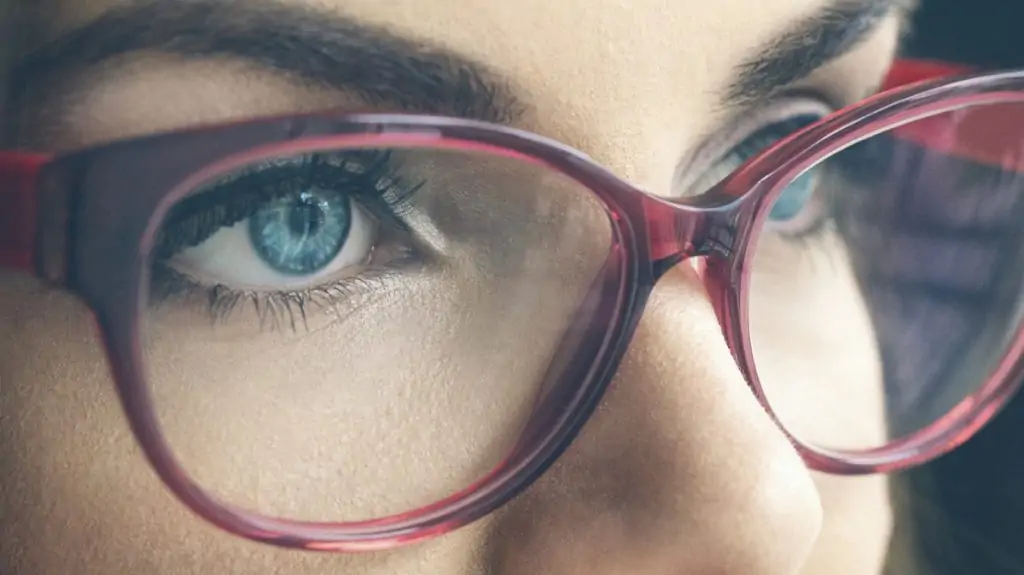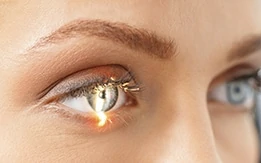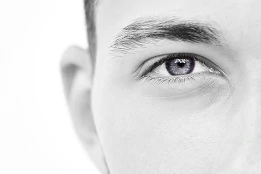Is LASIK Safe? What You Need to Know

LASIK safety is one of the first considerations for people who wonder if a laser vision correction procedure might be a better option for them than glasses or contact lenses. When asking the question – Is LASIK eye surgery safe? – often what people really want to know is:
- Is LASIK a safe surgical procedure? And,
- Is LASIK safe for my eyes?
The answer to the question is LASIK a safe surgical procedure? Is a resounding —Yes! A few basic facts that many patients find very comforting include:
- LASIK has been around for more than 20 years.
- The procedure was approved by the U.S. Food and Drug Administration in 1998.
- LASIK’s longevity and sustained popularity are due largely to a huge amount of clinical research supporting its impressive record for both safety and effectiveness.
The only way to answer the second question effectively is for the patient to have a thorough evaluation as part of a LASIK consultation with an eye care professional. This is an incredibly important step in the process of deciding if LASIK is right for you and your vision, which directly determines the safety of the procedure when it comes to your own eyes.
But those who are researching the procedure may want more details about LASIK eye surgery safety. Other common questions include: How long does LASIK last? Does my insurance cover LASIK? How does LASIK work? And many more! Below is an overview of the technological, clinical, and scientific support of LASIK safety.
Is LASIK Safe?
Is LASIK safe? LASIK is safe and is one of the most studied elective surgical procedures available today. Based on the research into and clinical experience with LASIK, the rate of complications from LASIK eye surgery is estimated to be well below 1 percent. More than 20 million LASIK procedures have been performed in the U.S. with a very high patient satisfaction rate. According to the most recent clinical data, more than 96 percent of patients report being satisfied with the outcome of their procedure. LASIK’s high patient satisfaction rate is due in part to the extremely low risk of complications from the surgery.
The confidence in LASIK as safe and effective is built upon the fact that it is one of the most studied elective procedures performed today:
- From 1993-2005, more than 9,000 patients participated in FDA clinical trials testing LASIK safety and outcomes.
- Since then, more than 7,000 peer-reviewed published studies confirm the procedure is both safe and effective as well as analyze other important aspects of LASIK.
This vast body of scientific evidence includes studies that:
- Refine what makes a patient a good or bad candidate for the procedure.
- Develop techniques and technologies that help reduce the potential for side effects such as dry eye, glare, and halos.
How safe is LASIK eye surgery?
An enormous amount of clinical data clearly answers the question – How safe is LASIK eye surgery? LASIK is one of the safest and most effective options for vision correction. It is estimated that far less than 1% of patients suffer complications LASIK. From a statistical perspective, a few of the most compelling data points supporting LASIK safety include:
- A recent analysis of studies comparing rates of infection between contact lens use and LASIK found that one year of using extended wear of soft contact lenses led to 3 times as many cases of microbial keratitis as LASIK.
- In a study evaluating the results of 58,653 procedures, less than 1 percent, .61%, of patients lost 2 lines (of the eye chart) of best-corrected visual acuity.
- As a point for reference, the U.S. Food and Drug Administration threshold for safety is less than 5 percent, confirming LASIK far surpasses the standard for safety.
- In fact, LASIK has never been the primary, exclusive cause of blindness.
LASIK is a safe and effective option for vision correction. Having concerns about the safety of the surgery and your eyesight is normal. You owe it to yourself and your vision to research the procedure thoroughly, so you fully understand the complications, risks, and benefits of LASIK.
For those who are weighing vision correction options, it is natural to be interested in the technologies used to make LASIK a safe procedure.
LASIK Safety Technology: Is LASIK dangerous?
LASIK uses advanced computer-driven laser technology to reshape the cornea with microscopic precision. A combination of sophisticated technologies is applied to provide a high degree of accuracy throughout the procedure process, helping to ensure patient safety.
- Your personal anatomy and vision are measured in high-definition detail during the pre-operative evaluation of your eyes. The LASIK surgeon then programs that data into the laser platform to customize the treatment plan to your unique requirements.
- The LASIK procedure is performed using the excimer laser – which emits a cool beam of ultraviolet light – to remove microscopic pieces of corneal tissue (the cornea is the outer structure of the eye) and reshape the surface, allowing the eye to focus clearly again.
- Today, many surgeons use a precision instrument called a femtosecond laser to create the corneal flap at the beginning of LASIK surgery. It operates at ultra-fast speeds and uses an extremely short pulse duration (measured in femtoseconds, hence the name) to create the flap without disrupting the surrounding corneal tissue.
Did you know that some of today’s LASIK technology was first developed by NASA? The same tracking system used to automate the docking of satellites to the Space Shuttle is used by the LASIK laser platform to track your eye movements. This tracking system monitors the eye thousands of times per second and adjusts the laser as needed to ensure it is applied at precise locations. Many patients find this comforting because one of the frequent questions asked in LASIK consultations is: “What if I move during the procedure?” The sophistication of the laser tracking system that follows the eye throughout the procedure will temporarily turn off the laser if it detects sudden, significant movement – like a cough or a sneeze. Once the patient is safely repositioned under the laser, the procedure can resume.
LASIK Eye Surgery Safety: What You Can Do
The most important thing you can do is put the time and attention into making sure your choice to have LASIK is an informed one. Here are some recommendations to help:
- Asking friends and family who have had LASIK is a good start and can lead to important referrals and recommendations for you.
- Do your own research about LASIK and laser vision correction procedures. In addition to this blog, there are several reliable sources of information about LASIK on the internet.
- Take the time to meet with several eye surgeons to get a variety of opinions and confirm LASIK is the right procedure for you. Everyone has a distinct style and different qualifications. You want to feel comfortable and confident in the expertise of the surgeon you chose. Your surgeon should be your highly qualified, trusted partner in achieving the vision you want.
- Bring your research with you to your consultation appointment(s) to have the surgeon clarify and confirm the information you have gathered. Having consistent information provided and confirmed by several sources, including your surgeon, will help you decide whether or not LASIK is right for you.
- As with all surgeries, LASIK has a recovery period and a healing process. Some patients may experience side effects, such as dry eye, glare, or halos during this time. These typically resolve over time or with treatment. Understanding the recovery and healing process is important – you want to know what to expect and what you need to do to take of yourself.
Finally, if you’re told you’re not a candidate for LASIK, take the recommendation seriously. If you are working with a highly qualified surgeon, he or she is making your health and vision the top priority. Listen to your surgeon and don’t try to find a less-than-reputable practitioner to have it done. Approximately 20 percent of people who want LASIK are not suitable candidates for a variety of health and medical reasons including thin or damaged corneas or sometimes chronic conditions such as diabetes or autoimmune diseases.
When deciding to have a laser vision correction procedure, it is normal to want to be assured that LASIK is safe. By every scientific and clinical standard, LASIK is among the safest elective procedures available today. That doesn’t mean that there aren’t any risks, and it isn’t necessarily the best option for any given person. In addition to independently researching the procedure using credible sources for information, having a thorough evaluation and a thoughtful conversation with an eye surgeon you trust is the best way to find out if LASIK is right for you.
Read more from our library of research here.




